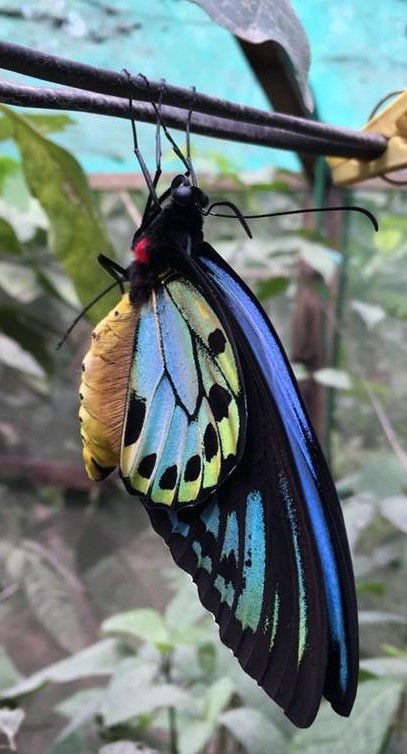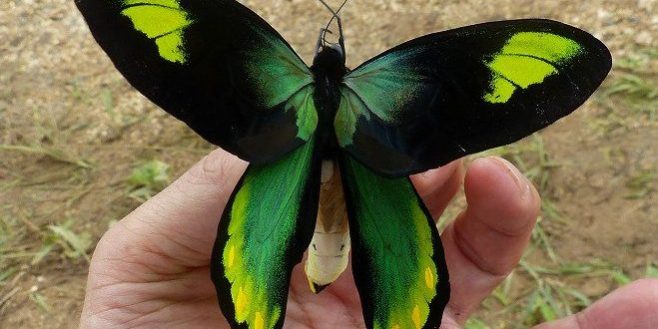LOCAL butterfly farmers are appealing on the responsible authority to consider lifting the ban imposed on butterfly trading so that they can be able to earn income for their families.
A butterfly farmer from Afio village in South Malaita, Robert Hou, on behalf of Solomon Islands butterfly farmers in an interview with the paper, requested the responsible authority – Conservation Division of the Ministry of Environment, Climate Change, Disaster Management and Meteorology (MECDM) to lift the ban.
The reason he stated is so that they can resume the exportation of butterflies as they have been a source of income for them until the ban was imposed.
“We, forest owners and butterfly farmers want to receive income to meet our family needs. Butterfly trading is a source of income for us in the rural areas.
“Its a big money that can support many families if the ban is lifted and butterfly trading is back,” he said.
“The ministry suspended butterfly trading for conservation purposes but we have been planting the ropes/vines to attract butterflies and so their population have been increasing,” Hou said.
The ropes/vines that the farmers have been planting are called ‘Warosaho’ and ‘Tariwe’e’ in the Are’Are language.
Hou, on behalf of butterfly farmers in the country, is requesting MECDM to lift the ban so that they can resume their exportation activities to earn income for their families.
There are two butterfly species in the country that can be traded internationally. They are Ornithoptera Urvillianus and Ornithoptera Victoriae.
The Solomon Star contacted Conservation Division of MECDM and was told by Chief Conservation Officer for Wild Life International Trade, Rose Babaua that they are getting ready to do the butterfly survey soon after they complete their survey on Monkey-tailed lizard. Harvesting of monkey-tailed lizards was banned since the 1990s and the ban is still in place.
Mrs Babaua explained the purpose of the butterfly survey is to determine the status of the species before lifting the ban so that farmers can resume their trading of butterflies.
The butterfly survey will be done in all provinces in the country, excluding Temotu and Renbel provinces, where the two butterfly species are non-existent.
Solomon Islands heavily involved in butterfly farming and trading around early 2000s.
However, it was banned from Birdwing international trade by Convention on International Trade in Endangered Species of Wild Fauna and Flora around 2005.
The Solomon Islands Development Trust (SIDT) was a responsible agency that acted as a clearing house for the sale of Ornithoptera butterflies, selling pairs for USD120 while if purchased from locals, the price was USD12.
By AGNES MENANOPO
Solomon Star, Honiara










